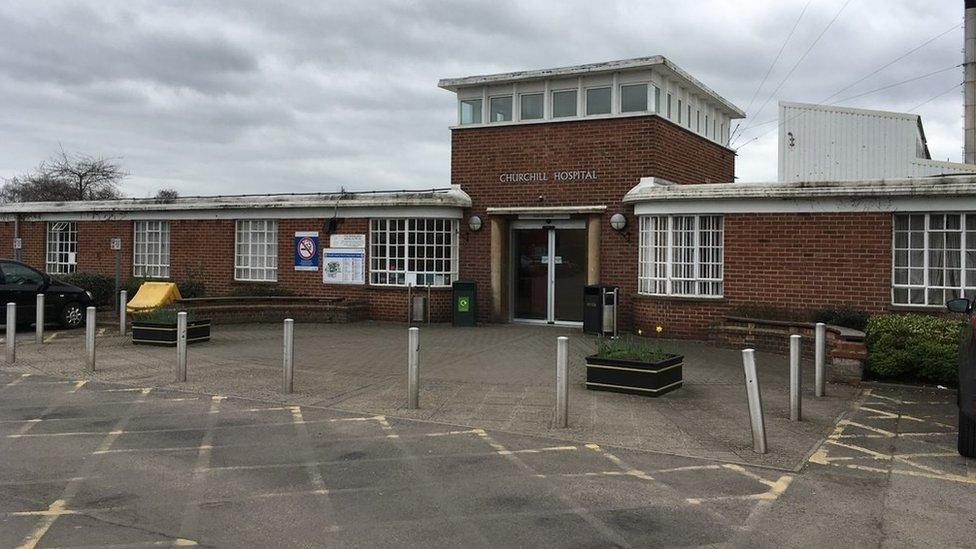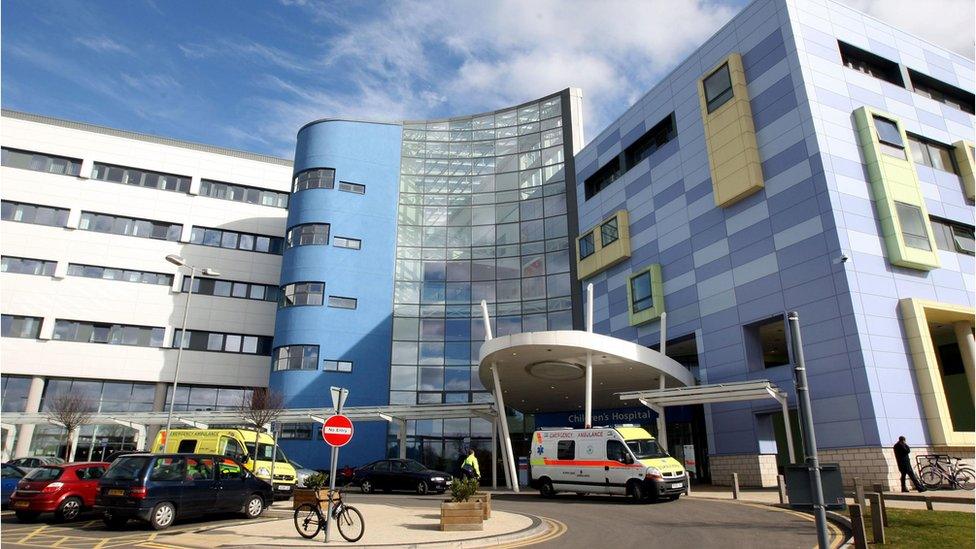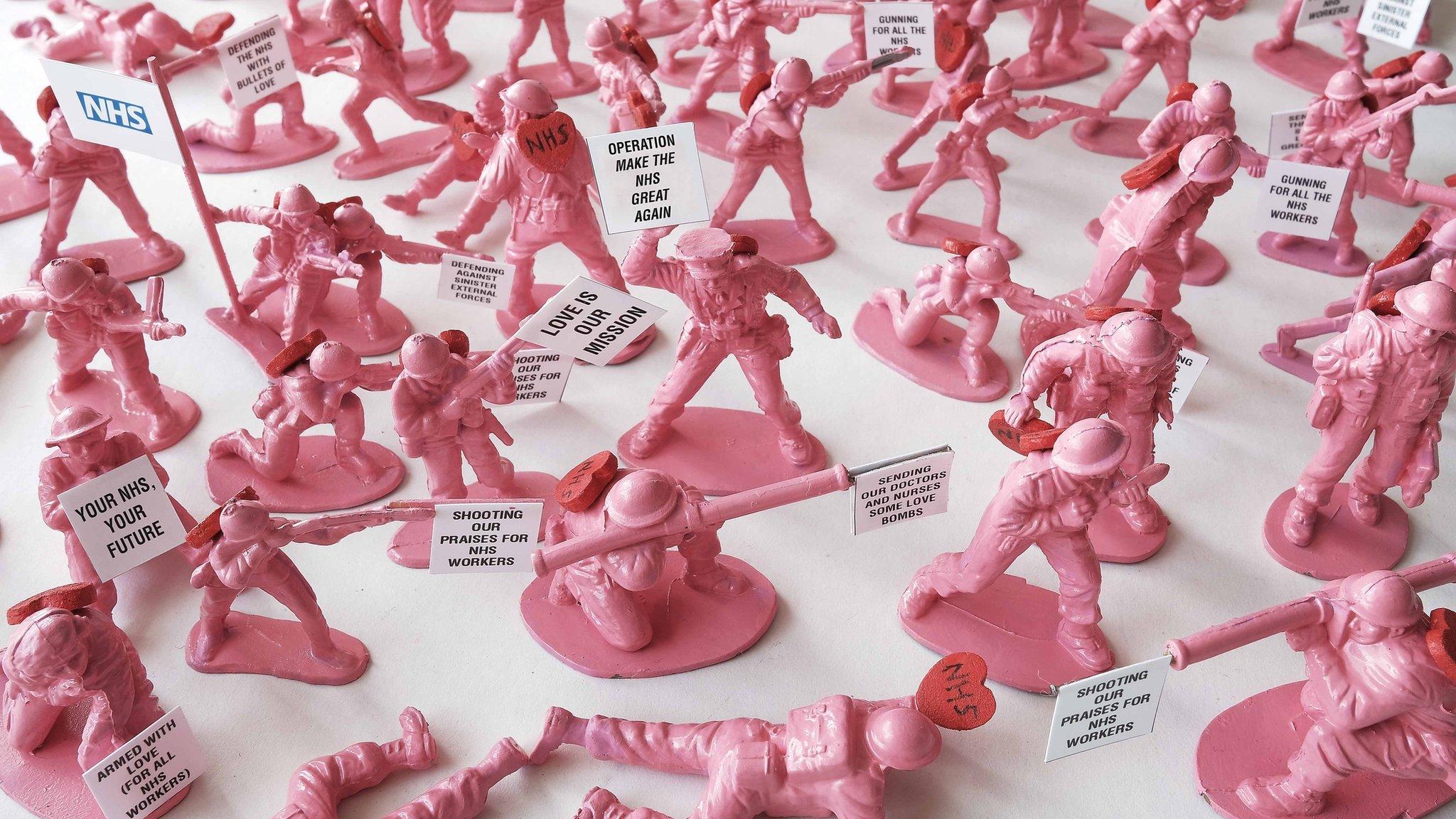Oxford University Hospitals facing large urgent repair backlog
- Published

RAAC (Reinforced Autoclaved Aerated Concrete) had been found at the Churchill Hospital
An NHS trust in Oxfordshire has one of the biggest backlogs of hospital building repairs in England.
Oxford University Hospitals (OUH) NHS Foundation Trust requires £237m to tackle the problem.
About £50m of the sum is needed for urgent repairs, up from £1.5m the previous year, the highest increase in the country.
The trust said the sharp rise was due to a recent change to building condition surveys.
Disrepair in NHS buildings led to thousands of potentially harmful incidents last year, according to findings made by the BBC under the Freedom of Information Act.
OUH runs the John Radcliffe Hospital, Churchill Hospital, Horton General Hospital, and Nuffield Orthopaedic Centre.
Donna-Sue Wright, the Royal College of Nursing's regional officer for Oxfordshire, said: "The more time taken trying to resolve problems in your environment, the less time you've got to do the job you love."
Ms Wright, who until recently spent about 16 years working at the county's hospitals, added: "Toilets have backed up and flooded, and it's flooding into patient areas, and you're trying to deal with that on top of an already pressurised situation of caring for very sick individuals."
She said she had also dealt with "ceilings falling down, mould everywhere, plants growing through windows" and cracks in windows and doors which "let in vermin and cockroaches".

Acute trusts with the highest overall repair backlogs (2022-23)

Oxford University Hospitals NHS Foundation Trust runs several hospitals, including the John Radcliffe (pictured)
Imperial College Healthcare £734m
Guy's and St Thomas £452m
Notting University Hospitals £437m
Airedale £358m
The Mid Cheshire Hospitals £337m
London North West Healthcare £299m
Barts Health £263m
Manchester University £254m
University Hospitals Birmingham £193m

Mark Holloway, chief officer for estates and facilities at the trust, said: "We are one of the largest trusts in the country and have four hospital sites, as well as other satellite properties.
"The uplift at OUH is as a result of a newer, detailed and more targeted building condition survey."
He said a small amount of RAAC (Reinforced Autoclaved Aerated Concrete) had also been found at the Churchill which was "currently safe and inspected regularly".
"The trust has been successful in receiving national RAAC remedial funding and will be removing all identified RAAC material from the hospital this year," he said.
"Patient safety is our number one priority at the trust, and continual investments and improvements in our estate do not compromise or impact patient or staff safety."
A Department of Health and Social Care spokesperson said trusts were responsible for prioritising funding to maintain and refurbish their premises.
They added: "We have invested significant sums to upgrade and modernise NHS buildings - including £4.2bn this financial year - so staff have the facilities needed to provide world-class care for patients."

Follow BBC South on Facebook, external, X, external, or Instagram, external. Send your story ideas to south.newsonline@bbc.co.uk.
- Published21 February 2024

- Published1 December 2023

- Published1 November 2023

- Published14 April 2023
